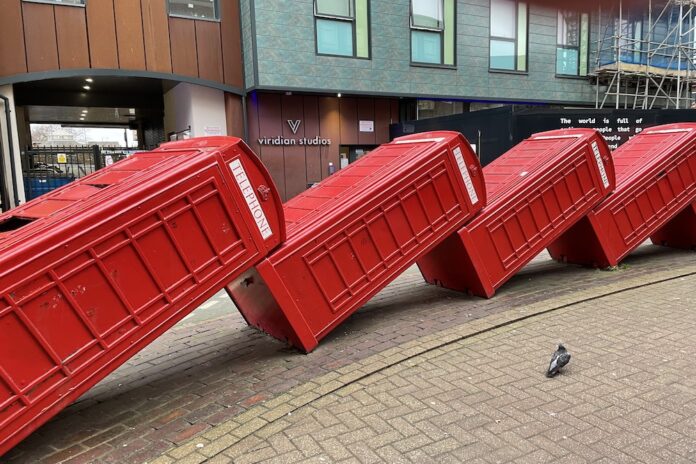Rare icons to be felled and sold to collectors
Some of last iconic red telephone boxes in Britain will soon be knocked over and sold to collectors as they become increasingly redundant. In the age of mobility, the owner of these big red boxes are struggling to find alternatives uses, reports The Daily Mail. In Birmingham, three public phone boxes in the Edgbaston area are being used as ‘click and collect’ points for drug dealing and soliciting sex works, reports the Birmingham Mail.
Quarter gone
Around a quarter of BT’s payphones are likely to be removed over the next year, chairman Adam Crozier told the company’s annual general meeting yesterday. The announcement follows action by regulator Ofcom last month to change the rules in order to protect kiosks in areas with a poor mobile phone signal, or where they are used frequently to report accidents or call helplines.
Adopt a phone
BT has 21,000 working payphones across the UK, 3,600 of which are the iconic red boxes. The boxes are a link with the past, when their owner the General Post Office (GPO) ran telecoms as a public service. With liberalisation, the GPO became British Telecom, now dubbed as BT. It runs a scheme for communities to adopt phone boxes for as little as £1 and change their use, such as into miniature libraries and art galleries.
Review
A BT spokesman said the firm is reviewing its payphones and was ‘looking at removing those which aren’t used’. Other payphones in operation include newer glass kiosk designs as well as phones located in shopping centres and train stations.
Photo op
Red phone boxes were once a staple of streets across Britain and remain an icon of the UK and serve as a key photo opportunity for tourists. But their existence has been under threat due to the meteoric rise of mobile phones, which has caused demand for payphones to collapse in all but the most remote areas. Alternative uses have been found for the boxes, some too unsavoury to mention and some have proved sadly impractical. In Kingston, South West London, this art installation (pictured) was created not far from a huge BT exchange building.


